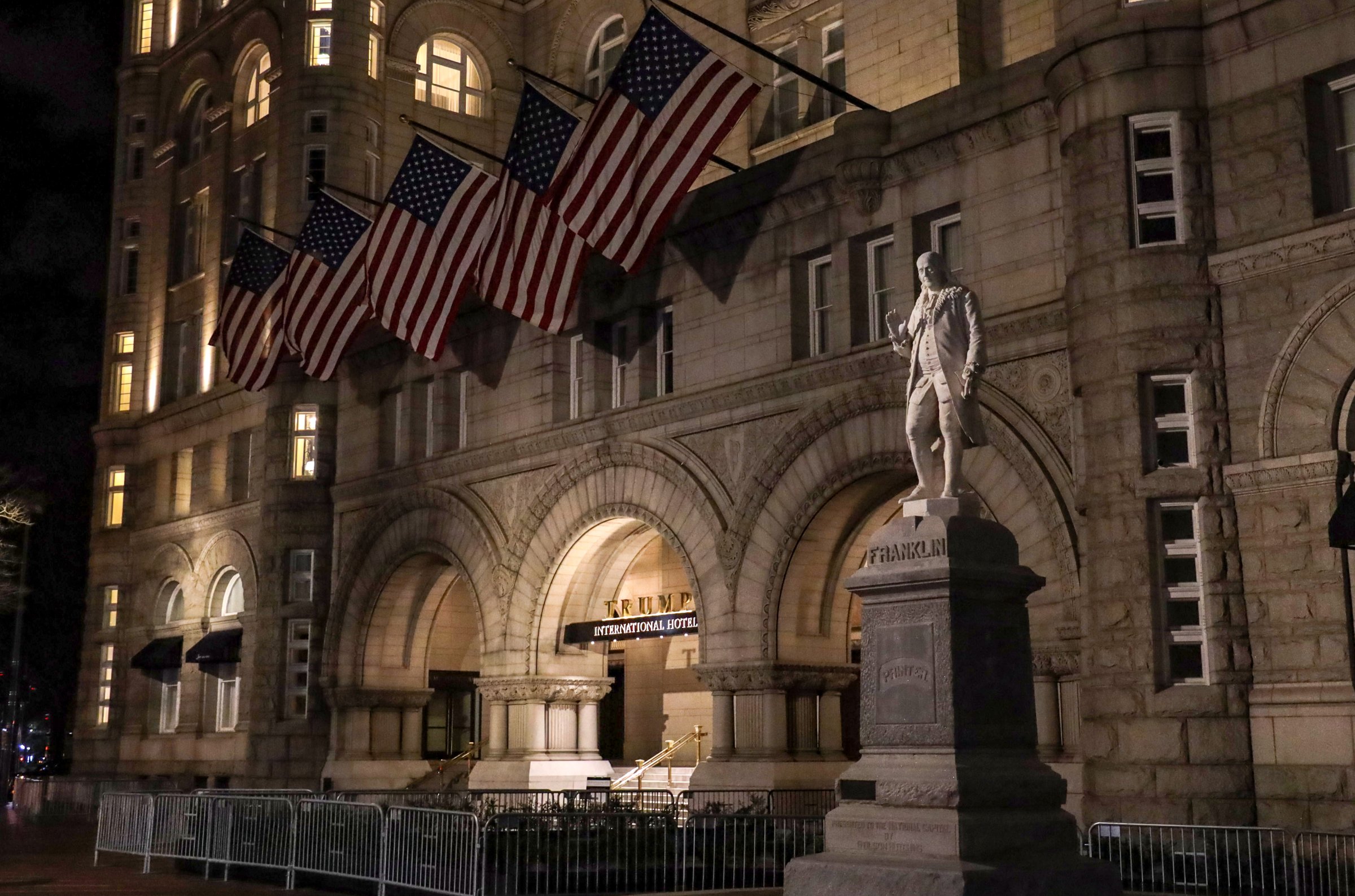
When Justice Department lawyers introduce themselves in court, they proclaim a specific affiliation: “I represent the United States.” That’s because the Justice Department has the responsibility by statute to represent the interests of the nation. That obligation to act on behalf of the nation has also motivated the Department’s legal advice on a question central to the integrity of our democracy — until now. Recent arguments show that the Department is putting President Trump’s interests before the nation’s.
For more than 150 years, the Department interpreted the Constitution’s “emoluments” clause to protect the government from the corrupting influence of foreign powers through gifts, emoluments and titles. The Department has issued more than 50 legal opinions declaring that the clause prohibits important federal officials from accepting anything of value — even token gifts — from such powers, unless Congress consents.
The prohibitions went further. Engineers and scientists who work for the federal government are prohibited from accepting any benefit (including consulting fees or travel reimbursement) that comes from a foreign government. The Department even prohibited a part-time federal employee who was also a partner in a law firm from accepting any money from the firm’s legal work for foreign governments, even though he had not worked on those cases, because “the partnership would in effect be a conduit” for foreign governments. When it interpreted this constitutional clause, the Department explicitly examined whether the particular payment “would raise the kind of concern [i.e.,] the potential for ‘corruption and foreign influence’… that motivated the Framers in enacting the constitutional prohibition.” At every turn, the Justice Department was on the lookout to ensure that federal officials did not accept direct or indirect foreign government payments.
But starting two years ago, the Department veered away from this long track record. In response to three lawsuits filed by an anti-corruption group, Democratic members of Congress and, jointly, the attorneys general of Maryland and the District of Columbia, the Department chose to defend President Trump’s ability to receive money from foreign governments instead of defending the republic. (On April 30, a U.S. District Judge ruled that the Congressional Democrats’ case can move forward.)
Trump’s personal lawyers have argued that the emoluments clause allows Trump — and all federal officials — to accept unlimited amounts of money from foreign governments, as long as those payments are in the form of commercial transactions with a business owned by the federal official. Contradicting its entire history, the Department adopted Trump’s lawyers’ argument, contending that the emoluments clause only prohibits compensation in exchange for a “personal service in his capacity as [an] officeholder” — in other words, a bribe.
Under this new interpretation of the emoluments clause, the government’s engineers and scientists would still be prohibited from accepting travel reimbursements from a foreign government, but any federal official who owns a company may accept unlimited amounts of money from foreign governments through commercial transactions. In effect, the Justice Department now claims that our founders only wanted to prohibit officials from receiving a second salary from a foreign government.
Foreign governments appear to be falling over themselves to spend money at Trump properties. Saudi Arabia’s lobbyists spend lavishly at Trump’s hotels in Washington, D.C., and New York City. Bookings at Trump’s Chicago hotel from Saudi Arabia have more than doubled since 2016, while bookings from Qatar have increased 17 times over the same period. The governments of Kuwait, Malaysia, Azerbaijan, Bahrain and the Philippines host multiple events at Trump properties, with the Philippines ambassador acknowledging that such spending is “a statement that we have a good relationship with this president.”
Trump wants to personally benefit from foreign government payments, and therefore seeks a narrow interpretation of the emoluments clause. He has a right to advocate for that narrow interpretation, but it is his personal attorneys — not the Justice Department — that should make such arguments. While we do not know the exact source of this new logic, Trump’s Justice Department is effectively acting as if it is a private law firm. Government employees are supposed to act in the public interest, not anyone’s personal interest. This is a fundamental principle of government ethics. If Justice Department lawyers are going to say that they “represent the United States,” they better have the interests of the country — not the financial interests of the President — at heart.
More Must-Reads from TIME
- Why Trump’s Message Worked on Latino Men
- What Trump’s Win Could Mean for Housing
- The 100 Must-Read Books of 2024
- Sleep Doctors Share the 1 Tip That’s Changed Their Lives
- Column: Let’s Bring Back Romance
- What It’s Like to Have Long COVID As a Kid
- FX’s Say Nothing Is the Must-Watch Political Thriller of 2024
- Merle Bombardieri Is Helping People Make the Baby Decision
Contact us at letters@time.com